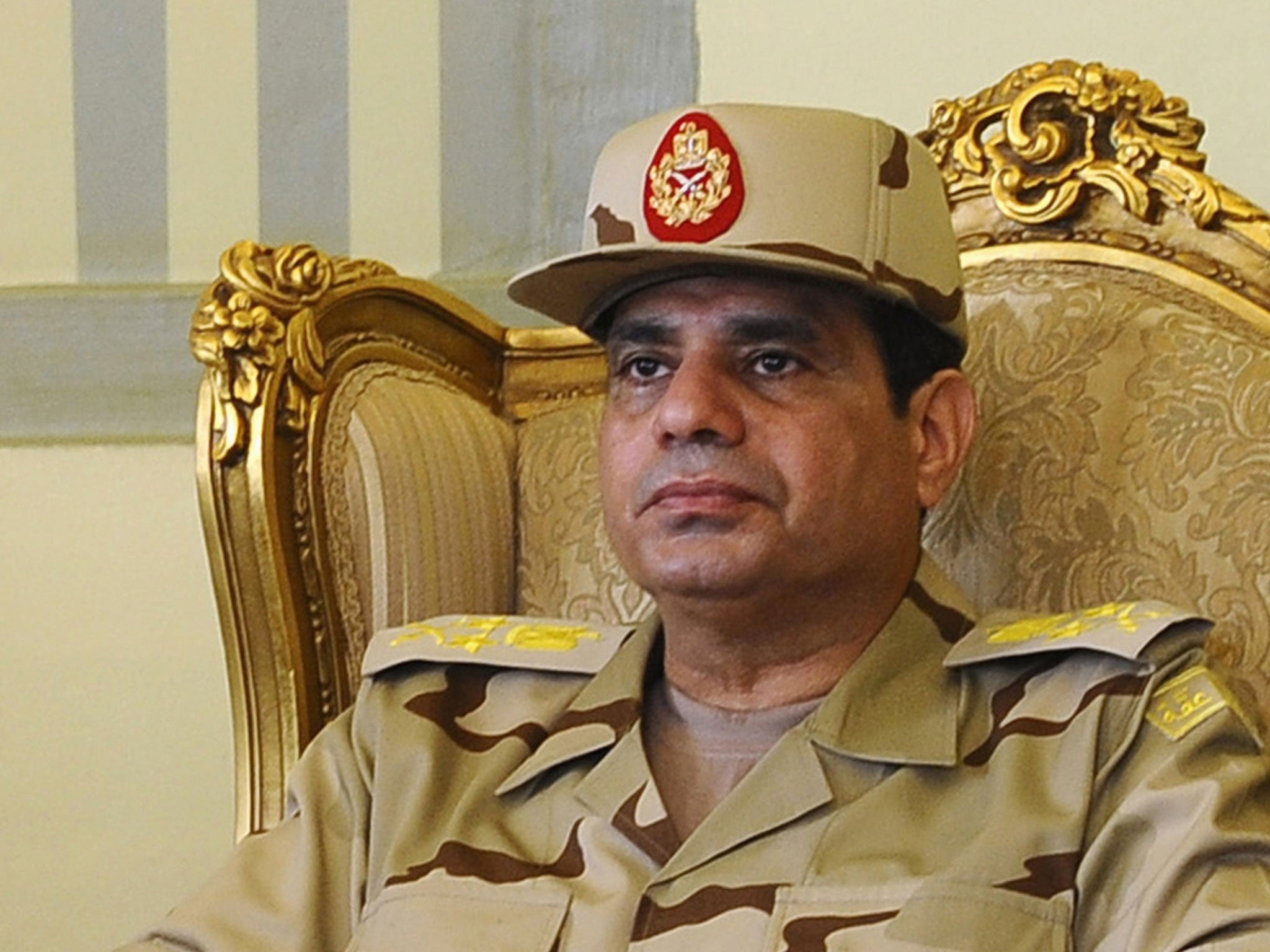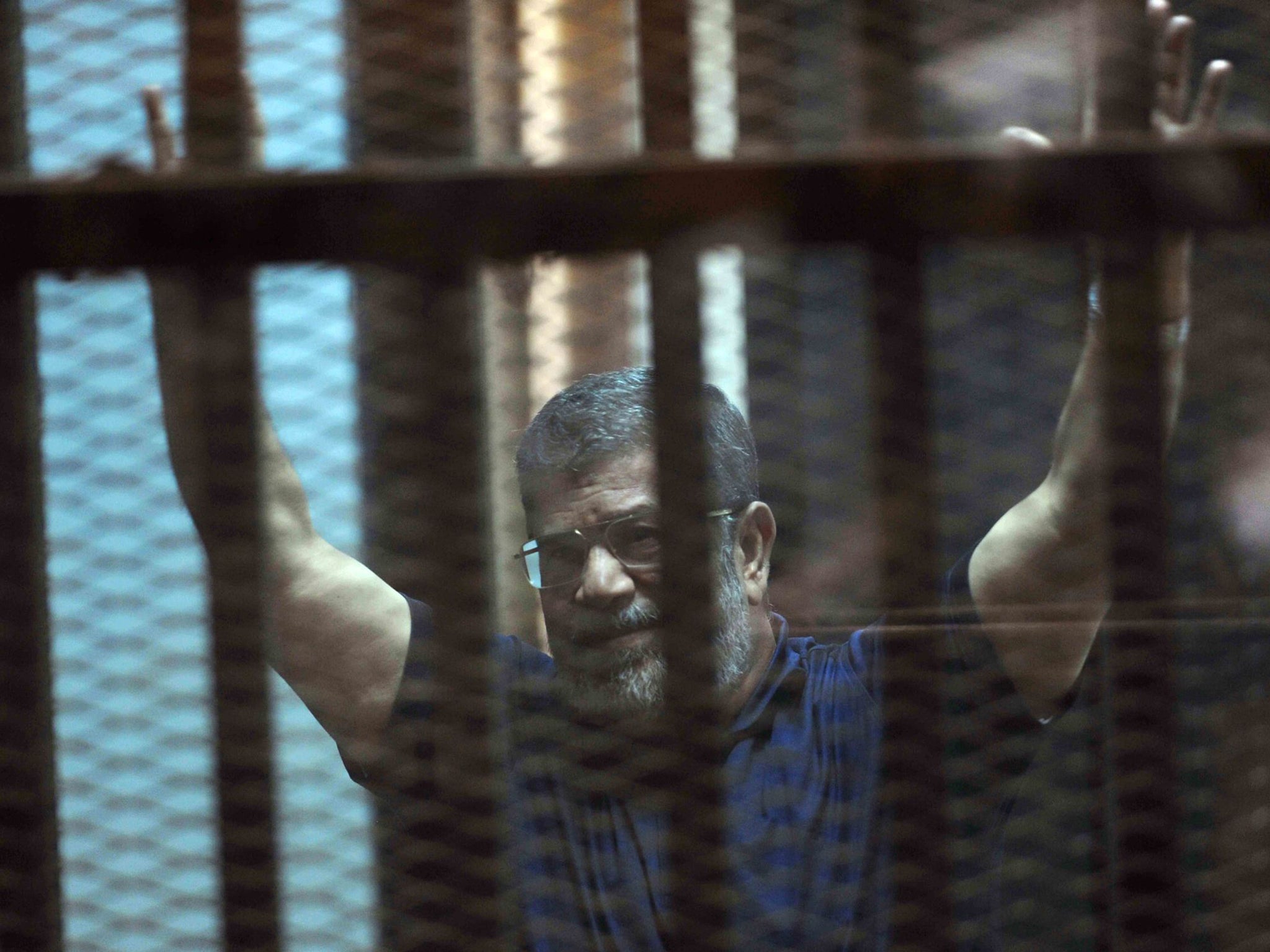David Cameron faces protest threat after inviting Egyptian president Abdel Fatah al-Sisi to London for talks
The Government insists 'no issues are off the table' when Mr Cameron hosts the president in Downing Street

Your support helps us to tell the story
From reproductive rights to climate change to Big Tech, The Independent is on the ground when the story is developing. Whether it's investigating the financials of Elon Musk's pro-Trump PAC or producing our latest documentary, 'The A Word', which shines a light on the American women fighting for reproductive rights, we know how important it is to parse out the facts from the messaging.
At such a critical moment in US history, we need reporters on the ground. Your donation allows us to keep sending journalists to speak to both sides of the story.
The Independent is trusted by Americans across the entire political spectrum. And unlike many other quality news outlets, we choose not to lock Americans out of our reporting and analysis with paywalls. We believe quality journalism should be available to everyone, paid for by those who can afford it.
Your support makes all the difference.David Cameron faced anger and threats of protests after he invited the Egyptian president for talks in London despite international condemnation of Abdel Fatah al-Sisi’s human rights record.
President Sisi, the former head of Egypt’s armed forces, staged a coup in 2013 to remove his democratically elected Islamist predecessor, Mohamed Morsi. A court in Cairo this week sentenced Morsi to death.
The Government confirmed the invitation, but insisted that “no issues are off the table” when Mr Cameron hosts the president in Downing Street.
His official spokeswoman said: “We have been looking at the possibility of President Sisi coming to have bilateral talks with the Prime Minister at some point later this year.
“The Prime Minister has talked before about how it is important we engage with countries where there are issues which are important to the UK’s national interest and how we can work together on them.

“When we engage with these countries of course we can raise matters of concern, no issues are off the table in discussions, but that doesn't mean that we shouldn't engage with people.”
But Amnesty International described the invitation as “astonishing and short-sighted given the appalling human rights violations taking place in Egypt”.
Hassiba Hadj Sahraoui, its Middle East and North Africa deputy director, said: “There has been a sharp rise in the number of death sentences and executions since Sisi came to power, some of which have taken place after grossly unfair trials.
“Thousands have been detained and many languish in jail, including journalists, in an apparent attempt to quash all dissenting voices.
“Many in the UK, including Amnesty, will be taking action around this visit. We want to see Prime Minister David Cameron personally raising human rights issues in any face-to-face talks with President Sisi, and we also want to see these issues addressed in public.”
In its latest report, Human Rights Watch said the Egyptian “human rights crisis” was the most serious in the country’s modern history.
It said: “The government consolidated control through constriction of basic freedoms and a stifling campaign of arrests targeting political opponents.”
It protested that the president had presided “a reversal of the human rights gains” that had followed the 2011 uprising which swept Morsi to power, adding that security forces and an “increasingly politicised judiciary” invoked security concerns to “muzzle nearly all dissent”.
Join our commenting forum
Join thought-provoking conversations, follow other Independent readers and see their replies
Comments